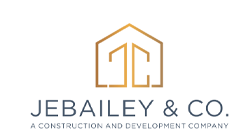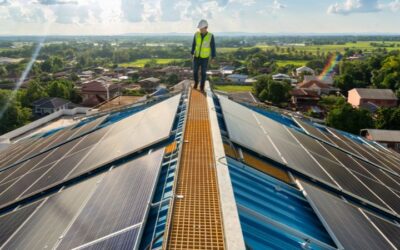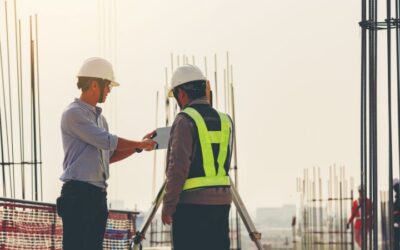Keeping up with the trends of design and building can help ensure that your space is always fresh, exciting, and current. An understanding of what’s continually evolving will create an organization that stands out from the rest.
As we design and build our spaces, it’s important to carefully consider which trends are fleeting fads versus more meaningful changes that can help improve how we work within them. When you identify a trend or innovation with the potential to enhance your environment – whether through increased efficiency, reduced costs, improved collaboration, or any number of other benefits – then you have found something worth investing in for long-term success.
Here are six trends we expect to see in 2023 that will improve your organization.
#1: RENEWABLE ENERGY
With energy costs skyrocketing this decade, it’s likely to have a serious impact on your finances. Just in the last year alone, electricity prices jumped by nearly 17%, while gasoline expenditures rose at an even higher rate of 18%. As we move further along into 2021 and beyond — remember that saving money requires taking control over how you use energy.
Come 2023, it looks as though many organizations will be making the exciting switch to renewable energy sources. Investing in solar panels and other green energy systems may cost a bit upfront but can prove to save your business money over time—after all nothing beats free electricity! And this isn’t just good for the wallet; such eco-friendly practices benefit us all by reducing our carbon footprints.
With energy prices on the rise, installing your own means of producing energy helps shield you from the seemingly ever-increasing energy costs. They also show your company’s commitment to sustainability, which is increasingly important for both consumers and employees.
A 2021 study conducted by global strategy and pricing consultancy Simon-Kucher & Partners found that 61% of Americans rated sustainability as an important purchase criterion, with much higher percentages for Millennials and Gen Z. As these younger generations transition into wealth-holding and decision-making roles, sustainable businesses are going to have a huge edge over the competition.
#2: CONNECTIVITY & SMART DEVICES
From high-tech smart devices to cutting-edge technology, property management is transforming into a more resourceful and cost-effective process. With continuous advancements in the digital age, businesses of all sizes can now take advantage of innovative solutions for enhancing their properties.
Gain insight into your building’s daily operations with indoor sensors. By tracking occupancy, you can plan around usage levels to reduce disruptions and make efficient use of lighting, heating, and cooling – helping save time, money & energy.
Smart lighting, security systems and thermostats can be digitally controlled from afar – allowing property managers to save time by remotely adjusting the building’s fixtures. Not only will this help you reduce costs for utilities and resource management, but it is applicable across a multitude of spaces ranging from residential houses to commercial buildings.
#3: ENERGY-SAVING DEVICES, APPLIANCES, AND FINISHES
Taking the initiative to upgrade your building with energy-efficient solutions can pay dividends in a number of ways. From heat reflecting roofs and ultra-efficient windows, to LED lighting fixtures – these simple changes are proven methods for reducing overhead costs while also being better for the environment.
Additionally, incorporating smart upgrades into larger construction projects is often more cost effective than making them independently! Utilizing such advances result not only in financial savings but will leave you feeling good knowing that you’re contributing toward a greener future.
#4: CREATING SPACES FOR CONNECTION, COMFORT, & WELL-BEING
As the world slowly turns to a more hopeful future, it’s time for people everywhere to reconnect and rediscover their social lives. To support this reuniting of loved ones we should expect design and building trends that look unique depending on our desired outcomes.
For organizations whose workforce stayed remote during these times, associated workspaces can create versatile spaces with digital as well physical infrastructure – allowing employees to make use of both worlds when they return.
As our lives become increasingly unpredictable, buildings are likely to be equipped with versatile flexible designs that suit the needs of a variety of situations. We can expect interior settings tailored for large groups or individual tasks as well as both casual and formal spaces based on preference. Smart devices will also streamline operations such as monitoring how many people are in the building at any given time–empowering property management even further.
#5: PLACEMAKING
Step into a generic chain restaurant and you’ll experience more than just familiar foods – the way it’s designed can influence your overall enjoyment. That power is called ‘placemaking’, an intentional effort to craft unique environments that leave lasting impressions.
Placemaking is an innovative way for organizations to create unique, inviting spaces that truly reflect their identity. With intentional building and interior design, these areas become somewhere people love spending time—regardless of whether it’s a place to live, work or simply pass through! By creating environments with positive energy and appeal comes enhanced experiences for everyone who visits.
Amidst the pandemic, placemaking has experienced a revival. Our longing to reconnect with people and environment is reshaping how businesses approach their spaces – they now understand that space can truly make all the difference in giving them an advantage on their competition.
In 2023, organizations everywhere will be optimizing the look and feel of their environments to maximize productivity and customer satisfaction. Through strategic design strategies from companies like us, customers and residents alike are sure to experience a more pleasant atmosphere when interacting with businesses.
#6: GETTING INPUT FROM ALL STAKEHOLDERS
When embarking on a new interior design project, it pays to listen. Reach out and consult with those who will inhabit the space every day – their valuable input can provide invaluable insight into how best to create or improve an environment that meets everyone’s needs.
From the get-go, successful construction projects are rooted in collaboration and teamwork. To ensure that this ethos carries through to project completion, it’s important to bring stakeholders into your team. Look for representatives from each department or group of your organization – ask them what they feel is necessary from a new space so their feedback can be included in planning efforts. Choosing an experienced design-build company will help bring all voices together on this shared goal of creating meaningful spaces.




